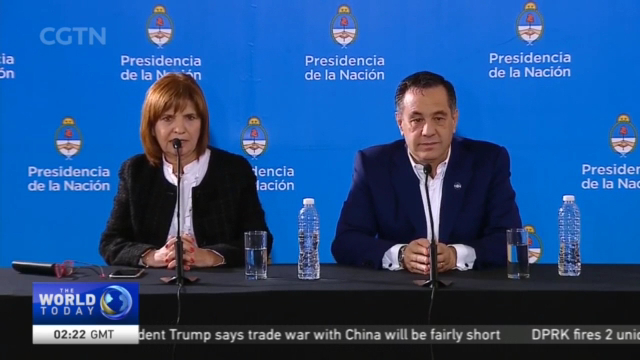
10:43, 16-Aug-2019
Argentina Economy: President Macri unveils relief measures after shock at polls
Updated
11:12, 16-Aug-2019

Last Sunday's presidential primary election in Argentina and its surprising results have done little to change the country's economic instability. President Mauricio Macri, who was trounced in what was predicted to be a close race, has announced a series of emergency measures aimed at appeasing voters. CGTN's Joel Richards reports from Buenos Aires.
Argentine President Mauricio Macri admitted after last weekend's resounding defeat in presidential primaries, "We had a bad election." He has vowed to win back support.
Far from monitoring the stock market or the price of the dollar, many in this country say it's a question of making ends meet. On Thursday, they took to the streets.
Monica Bustamente runs a small hair salon and says work is slow. She says she had stopped attending marches but began again last year because of the economic situation.
MONICA BUSTAMANTE PROTESTER "People prefer to have food on the table rather than look good. That is the choice they have."
Economic instability is part of daily life here. People are worried about making ends meet.
JOEL RICHARDS BUENOS AIRES "There are protests taking place across Buenos Aires today. We can see one group down by the Obelisk and then further along this central main avenue in the city, there are several other organizations. These organizations have different political affiliations, but they are all here to protest the economic situation in Argentina. And what we are being told is that if there is not a response from the government soon, they will be looking to organize a major protest for next week."
After Thursday's cabinet meeting, Security Minister Patricia Bullrich said the government has gotten the message sent by voters over the weekend.
PATRICIA BULLRICH ARGENTINA SECURITY MINISTER "The most important message that we have to give today is that in the meeting in the coming 72 days, you will see us on the street, everywhere, talking to people so we can continue with this political project."
The government has announced measures aimed at helping the middle class, from income tax cuts to freezing the cost of fuel and housing credit repayments. But social leader Silvia Saravia says the government is not taking care of the people who most need it.
SILVIA SARAVIA, NATIONAL COORDINATOR BARRIOS DE PIE "We agree with the vote against Macri. It's good that people are voting against those who are enriching wealthy sectors and making the working class poorer."
The latest economic data indicates annual inflation has increased nearly 55 percent in the past year. After this week's currency devaluation, that's likely to go up even more. For many, this situation is similar to previous crises in Argentina. And Macri's opponents are taking note.
Joel Richards, CGTN, Buenos Aires.
SITEMAP
Copyright © 2018 CGTN. Beijing ICP prepared NO.16065310-3
Copyright © 2018 CGTN. Beijing ICP prepared NO.16065310-3